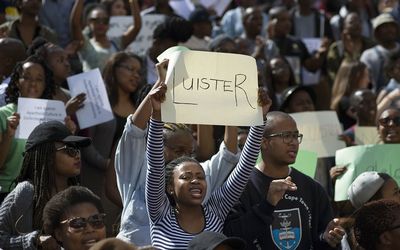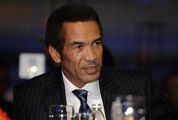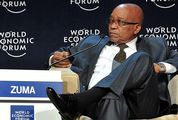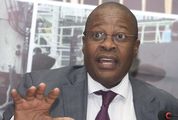AGITATION for transformation across various spheres of society is reaching fever pitch. The spotlight is shining intensely, particularly on the economy, corporate boardrooms and historically white universities and sporting codes.
Judge Ntendeya Mavundla, who was this week hearing a matter brought by the Agency for a New Agenda concerning lack of transformation in rugby, made some sharp remarks. He decried the fact that transformation had moved slowly in the past 21 years and expressed a wish that the courts adjudicate on this matter. His thinly veiled message was that government had failed.
Failure to manage transformation properly could deepen resentment in society, with social tension manifesting itself in violent ways. Consider the simmering tension in historically white English and Afrikaans universities.
In the case of the former, calls for major shifts in institutional culture, encompassing a conducive learning environment for black students, diverse knowledge systems embedded in the curriculum, and affirmation of diverse cultural symbols were expressed in the Rhodes Must Fall movement at the University of Cape Town.
Hostility at the University of Stellenbosch sharpened with the release of the Luister video documenting the grim experiences and fears of black students.
What is surprising about these developments is that it is only now they are seizing attention. Just like in much of society, these universities have been normalising what should be regarded as profane — entrenching historical privileges.
Disappointingly, these enclaves that seek to perpetuate the privileges of the past are budding under the watch of a predominantly black government. Two decades into democracy, more than 60% of Stellenbosch’s student community is still white, while they are less than 10% of the population. You would be hard-pressed to find black staff members.
When I was a graduate student at Stellenbosch in the late ’90s, I interacted with many undergraduate black students who had to battle against a system that grudgingly tolerated them. They would be told they should go and study at universities in the former homelands, as if we were still living in that accursed era of separate development. Young people from Kayamandi, a township a stone’s throw away from Stellenbosch, had no sense of ownership of this university. Learning support was deficient. Many dropped out as a result of a hostile institutional culture. Some succeeded against the odds. Possibly some still carry psychological scars.
In some instances, authorities even used the fact of historical disadvantage, perversely, to make a point that they did not belong at a university, let alone a historically white one.
The sadder reality is that many white lecturers and university leaders unconsciously suffer the worst form of disadvantage: they are exposed to just one cultural system, parochial modes of thinking, and are paralysed by an irrational fear of diversity.
University authorities might invoke the "sanctity" of Afrikaans and narrow-minded regionalism as something to be defended at all costs, while remaining blind to the fact that this is used to systematically shut out the majority of black students from accessing a well-resourced university. They fail to see Afrikaans as a language flourishing alongside other African languages on equal terms. Insisting on its mythical superiority, they bastardise it into an instrument of repression reminiscent of the Verwoerd era.
The writing is on the wall. Carefully managed change built on good faith is preferable to that driven through strife. When those in authority mete out psychological violence today, they are bound to reap its bitter fruits tomorrow. There is an opportunity to position universities to play a constructive role in nation-building.
• Qobo is a political economist

Students hold placards at a protest against alleged racism on campus brought to light by a documentary, Luister (Listen), in Stellenbosch on Tuesday. Picture: AFP PHOTO/RODGER BOSCH
AGITATION for transformation across various spheres of society is reaching fever pitch. The spotlight is shining intensely, particularly on the economy, corporate boardrooms and historically white universities and sporting codes.
Judge Ntendeya Mavundla, who was this week hearing a matter brought by the Agency for a New Agenda concerning lack of transformation in rugby, made some sharp remarks. He decried the fact that transformation had moved slowly in the past 21 years and expressed a wish that the courts adjudicate on this matter. His thinly veiled message was that government had failed.
Failure to manage transformation properly could deepen resentment in society, with social tension manifesting itself in violent ways. Consider the simmering tension in historically white English and Afrikaans universities.
In the case of the former, calls for major shifts in institutional culture, encompassing a conducive learning environment for black students, diverse knowledge systems embedded in the curriculum, and affirmation of diverse cultural symbols were expressed in the Rhodes Must Fall movement at the University of Cape Town.
Hostility at the University of Stellenbosch sharpened with the release of the Luister video documenting the grim experiences and fears of black students.
What is surprising about these developments is that it is only now they are seizing attention. Just like in much of society, these universities have been normalising what should be regarded as profane — entrenching historical privileges.
Disappointingly, these enclaves that seek to perpetuate the privileges of the past are budding under the watch of a predominantly black government. Two decades into democracy, more than 60% of Stellenbosch’s student community is still white, while they are less than 10% of the population. You would be hard-pressed to find black staff members.
When I was a graduate student at Stellenbosch in the late ’90s, I interacted with many undergraduate black students who had to battle against a system that grudgingly tolerated them. They would be told they should go and study at universities in the former homelands, as if we were still living in that accursed era of separate development. Young people from Kayamandi, a township a stone’s throw away from Stellenbosch, had no sense of ownership of this university. Learning support was deficient. Many dropped out as a result of a hostile institutional culture. Some succeeded against the odds. Possibly some still carry psychological scars.
In some instances, authorities even used the fact of historical disadvantage, perversely, to make a point that they did not belong at a university, let alone a historically white one.
The sadder reality is that many white lecturers and university leaders unconsciously suffer the worst form of disadvantage: they are exposed to just one cultural system, parochial modes of thinking, and are paralysed by an irrational fear of diversity.
University authorities might invoke the "sanctity" of Afrikaans and narrow-minded regionalism as something to be defended at all costs, while remaining blind to the fact that this is used to systematically shut out the majority of black students from accessing a well-resourced university. They fail to see Afrikaans as a language flourishing alongside other African languages on equal terms. Insisting on its mythical superiority, they bastardise it into an instrument of repression reminiscent of the Verwoerd era.
The writing is on the wall. Carefully managed change built on good faith is preferable to that driven through strife. When those in authority mete out psychological violence today, they are bound to reap its bitter fruits tomorrow. There is an opportunity to position universities to play a constructive role in nation-building.
• Qobo is a political economist






















Change: -2.60%
Change: -2.88%
Change: -2.44%
Change: -2.44%
Change: -5.26%
Data supplied by Profile Data
Change: 0.00%
Change: 0.00%
Change: -2.60%
Change: 0.00%
Change: 0.00%
Data supplied by Profile Data
Change: 1.98%
Change: -0.06%
Change: -0.19%
Change: -0.09%
Change: 0.57%
Data supplied by Profile Data
Change: 0.00%
Change: 0.00%
Change: 0.00%
Change: 0.00%
Change: 0.00%
Data supplied by Profile Data